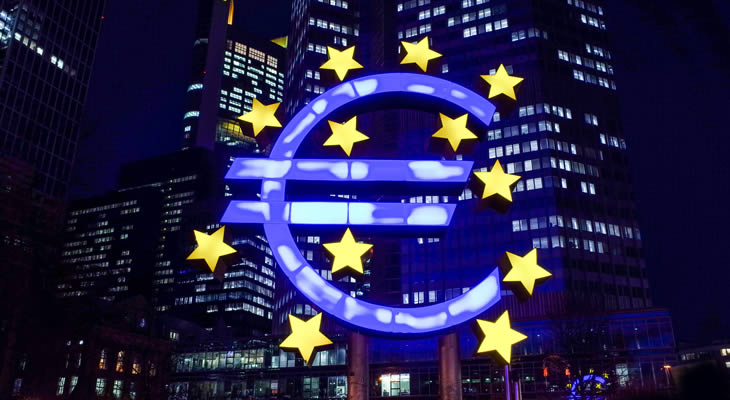Pound to Euro Exchange Rate Nears Lows as Bank of England (BoE) Bets Slide
Demand for the Pound to Euro (GBP/EUR) exchange rate weakened again on Monday, as the latest set of UK ecostats failed to meet market expectations and instead indicated that Britain’s economy was performing more poorly than expected.
So could GBP/EUR be in for another week of losses? GBP/EUR opened last week at the level of 1.1445 and closed at 1.1388 after recovering from the week’s monthly low of 1.1325.
However, on Monday the Pound’s (GBP) weakness and the Euro’s (EUR) resurgent strength pushed GBP/EUR lower, and at the time of writing GBP/EUR was trending closer to its monthly lows again.
As Sterling was dragged lower by domestic growth concerns, the Euro has benefitted from hopes that the European Central Bank (ECB) is unfazed by recent political jitters and global trade concerns.
ECB officials have hinted that the bank is still on track to lighten Eurozone stimulus measures this year, which has restored some market faith in the Eurozone’s economic stability.
Pound (GBP) Exchange Rates Could Remain Weak Unless UK Economic Outlook Turns Around
While May’s PMI results did beat expectations the other week, Britain’s economic rebound may not be all that impressive if economic data from April has come in with such sharp contractions.
Monday saw the publication of Britain’s April trade balance results, as well as April’s industrial and manufacturing production figures and the latest construction orders results.
The UK trade deficit was forecast to have lightened from £-3.091b to £-2.5b, but instead worsened from a revised £-3.22b to £-5.28b.
Production stats highly disappointed in every notable print, indicating that Britain’s economy activity continued to perform well below trend.
Industrial production slumped from 0.1% to -0.8% month-on-month and from 2.9% to 1.8% year-on-year. Manufacturing production worsened from -0.1% to -1.4% MoM and from 2.9% to 1.4% year-on-year.
Construction was highly disappointing too. The Q1 figure contracted from -1.1% to -6.6%, while April’s year-on-year figure only lightened from -4.9% to -3.3% rather than the forecast -1.8%.
Euro (EUR) Exchange Rates Sturdy as ‘Italexit’ Fears Wane
The long-term Euro outlook has seen some relief this week, as market concerns about the possibility of Italy pulling away from the Eurozone have softened.
While a populist coalition government has recently taken power in Italy, the government’s Finance Minister Giovanni Tria insisted over the weekend that the government would not look to leave the Euro.
He assured that it was not on the government’s agenda, in an attempt to calm financial market jitters
While concerns still remained due to the coalition’s history with Euroscepticism, the comments did help to calm markets somewhat. According to Lee Hardman from MUFG:
‘The comments calmed fears but let’s wait for Italy’s policy actions this summer, that will determine the market,’
On top of this, investors are becoming more hopeful that the European Central Bank (ECB) still plans on withdrawing its quantitative easing (QE) measures this year. This has left the Euro appealing ahead of this week’s upcoming ECB decision.
Pound to Euro (GBP/EUR) Forecast: Central Bank Speculation in Focus
With Britain’s latest ecostats disappointing and Italian political jitters taking a backseat, the Pound to Euro (GBP/EUR) exchange rate is likely to be driven mostly by central bank speculation and news this week.
Bank of England (BoE) interest rate hike bets fell when Britain’s latest production results came in, but they could rise again if upcoming UK wage or inflation figures beat expectations.
If UK wages and inflation figures impress it would indicated that UK price pressures are strengthening, which may pressure the BoE to hike UK interest rates regardless of mixed economic news.
ZEW’s Eurozone economic sentiment survey data for June will be published on Tuesday and employment stats will come on Tuesday, but the Euro is likely to remain appealing until the European Central Bank’s (ECB) policy decision.
The ECB will announce its decision on Thursday, followed by a press conference.
If the bank discusses details on its plan to withdraw quantitative easing (QE), the Euro outlook would strengthen and GBP/EUR would have a harder time holding its ground.


Comments are closed.